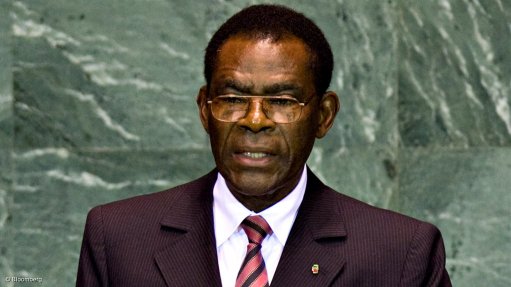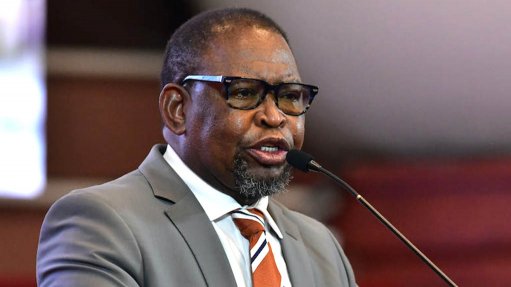Seifsa elects ‘most transformed’ board to date
Arabela Holdings executive chairperson Elias Monage has been elected president of the Steel and Engineering Industries Federation of Southern Africa (Seifsa) and chairperson of its board of directors, with effect from October 12.
Monage was elected president during Seifsa’s seventy-sixth annual general meeting on Friday.
ArcelorMittal South Africa marketing director for Africa Alpheus Ngapo, Babcock International Africa division company secretary Neil Penson and Auto Industrial Group CEO Andrea Moz were elected as VPs.
Other board members elected are South African Mint Company MD Tumi Tsehlo, MphoNo Energies MD and KSB Pumps & Valves board member Nonhlanhla Ngwenya, Lixil Africa chief legal and human resources officer Seneca Lutchmana and Murray & Roberts Power & Energy human resources (HR) executive Patrick Metswi.
They join Africa Steel Holdings founding director Mayleen Kyster and Zimco Group HR manager Ellen Veldhoven on the Seifsa board.
Seifsa CEO Kaizer Nyatsumba said this was the most diverse that the federation’s board had been in its history.
“We commend Seifsa membership associations for having elected the most transformed board in the federation’s history, both in terms of race and gender. Colleagues and I are encouraged by this development, which we believe bodes well for transformation in the metals and engineering sector. We look forward to working with the new president and board members,” Nyatsumba said.
Delivering the presidential address, outgoing interim president Ngapo said although production in the metals and engineering sector was generally increasing alongside international commodity prices, the cluster was still going through a structural adjustment and its challenges were still prevalent.
“Its growth pattern still fluctuates, productivity is generally poor, capacity utilisation is still below the required 85% and investment and profit levels are low. Domestic production costs have also been rising alongside output levels,” Ngapo said.
He added that, although these challenges signalled the resilient nature of businesses in the metals and engineering sector, regrettably, the optimism and hope for better future business prospects was not shared by all purchasing executives. He said there continued to be understandable concern among a number of stakeholders and observers that the country was de-industrialising.
“That concern is a direct consequence of the ongoing decline of broader manufacturing’s contribution to South Africa’s gross domestic product over the past few decades, at a time when other sectors such as finance, real estate and business services and wholesale and retail trade, catering and accommodation grew at a higher pace,” he elaborated.
Other challenges currently facing the sector, Ngapo added, were South Africa’s lacklustre economic performance, followed by continuing significant imports of cheap products and skills, as well as the manufacturing sector’s apparent lack of international competitiveness.
“These challenges will continue to stare us in the face, and maybe even worsen, until such time that government, business and labour get together to address them constructively, putting the country’s interests above all else, and then implementing the solutions agreed to,” he said.
University of Johannesburg Pan-African Institute Associate Professor Mcebesi Ndletyana provided an insightful analysis of the country’s political economy.
He said that while the initial optimism that came about as a result of the replacement of former President Jacob Zuma with President Cyril Ramaphosa, has since subsided, he remained hopeful that a new dawn and a promise of renewal was still possible, but only if the ruling party worked hard to distinguish itself from Zuma’s African National Congress (ANC).
“The ANC Ramaphosa inherited was not only riddled with corruption, but it had also turned South Africa into a clientelist State that served as client for the Gupta family. For the current administration to stand a chance of securing victory at next year’s election, it is of paramount importance for it to cleanse itself of corrupt leaders, including Ministers implicated in State capture,” Ndletyana said.
He said for a different ANC to emerge, a new, morally conscious leadership would have to rise and reform the ANC, adding that failure to do so would result in the political party losing the 2019 elections.
Comments
Press Office
Announcements
What's On
Subscribe to improve your user experience...
Option 1 (equivalent of R125 a month):
Receive a weekly copy of Creamer Media's Engineering News & Mining Weekly magazine
(print copy for those in South Africa and e-magazine for those outside of South Africa)
Receive daily email newsletters
Access to full search results
Access archive of magazine back copies
Access to Projects in Progress
Access to ONE Research Report of your choice in PDF format
Option 2 (equivalent of R375 a month):
All benefits from Option 1
PLUS
Access to Creamer Media's Research Channel Africa for ALL Research Reports, in PDF format, on various industrial and mining sectors
including Electricity; Water; Energy Transition; Hydrogen; Roads, Rail and Ports; Coal; Gold; Platinum; Battery Metals; etc.
Already a subscriber?
Forgotten your password?
Receive weekly copy of Creamer Media's Engineering News & Mining Weekly magazine (print copy for those in South Africa and e-magazine for those outside of South Africa)
➕
Recieve daily email newsletters
➕
Access to full search results
➕
Access archive of magazine back copies
➕
Access to Projects in Progress
➕
Access to ONE Research Report of your choice in PDF format
RESEARCH CHANNEL AFRICA
R4500 (equivalent of R375 a month)
SUBSCRIBEAll benefits from Option 1
➕
Access to Creamer Media's Research Channel Africa for ALL Research Reports on various industrial and mining sectors, in PDF format, including on:
Electricity
➕
Water
➕
Energy Transition
➕
Hydrogen
➕
Roads, Rail and Ports
➕
Coal
➕
Gold
➕
Platinum
➕
Battery Metals
➕
etc.
Receive all benefits from Option 1 or Option 2 delivered to numerous people at your company
➕
Multiple User names and Passwords for simultaneous log-ins
➕
Intranet integration access to all in your organisation


















